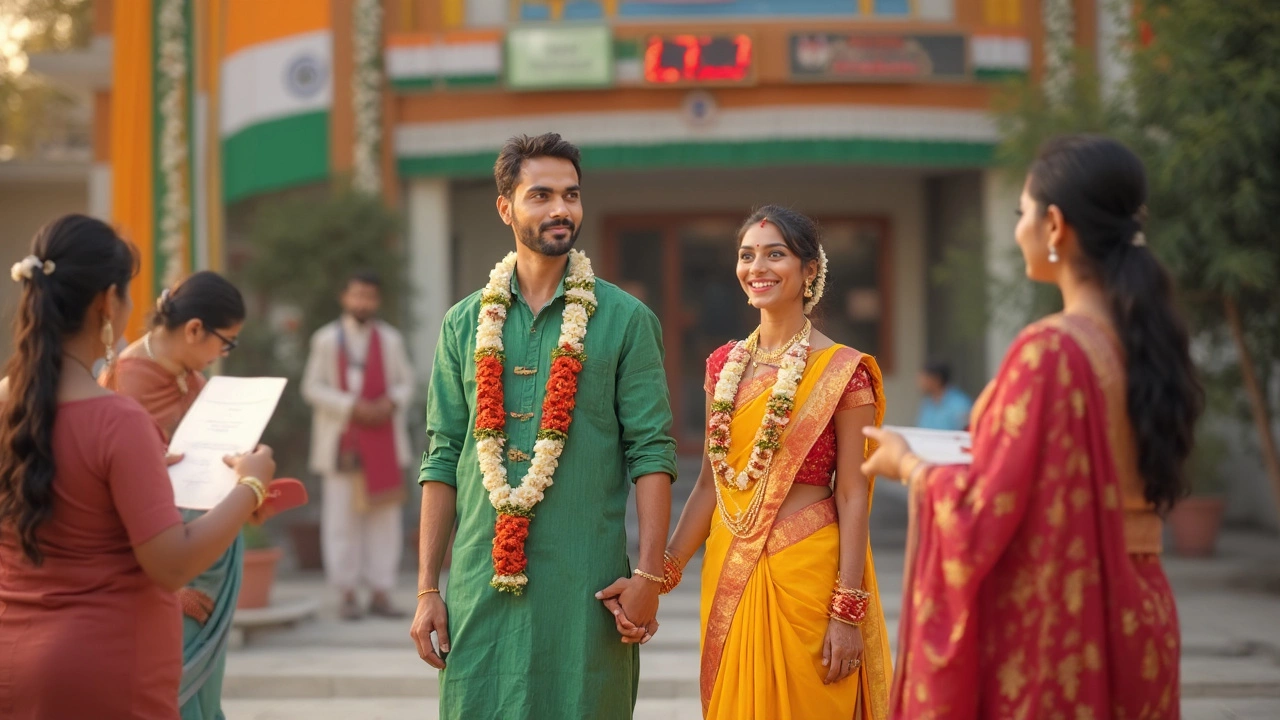Court Marriage in India: What You Need to Know
Thinking of a simple, low‑cost wedding that’s still fully legal? A court marriage might be the perfect fit. It skips the big venues, elaborate rituals, and huge budgets while giving you the same legal rights as a traditional ceremony. Below you’ll find a straight‑forward guide that walks you through everything—from paperwork to the actual day in the court.
Step‑by‑Step Process
1. Choose the right court: Most district courts have a marriage officer (also called a Marriage Registrar) who handles court marriages. You can also go to a Taluka or Sub‑Divisional Court if they offer the service.
2. Gather required documents:
- Proof of age (birth certificate, school certificate, or passport).
- Residence proof (electricity bill, Aadhaar, or rental agreement).
- Passport‑size photographs (usually 2‑4).
- Affidavit stating that both parties are unmarried, not related, and aware of the marriage.
- Divorce decree or death certificate if either partner was previously married.
3. Apply online or in person: Many states now allow you to download the application form from the court’s website. Fill it, attach the documents, and submit it at the court office. You’ll pay a nominal fee—often under ₹500.
4. Verification and notice: The court officer will verify your documents and issue a notice of intended marriage. This notice is displayed publicly for 30 days to allow any objections.
5. Set the date: After the notice period, you can choose a date for the ceremony. The court will allocate a slot, usually within a few weeks.
6. The ceremony: On the day, both parties, two witnesses, and the marriage officer gather. You’ll sign the marriage register, exchange vows (if you wish), and receive a marriage certificate on the spot.
Benefits and Common Questions
Legal recognition: A court marriage is automatically recognized under the Hindu Marriage Act, Special Marriage Act, or other personal laws, giving you full rights to inheritance, joint property, and spousal benefits.
Cost‑effective: You avoid venue rental, catering, and decoration expenses. The only real cost is the filing fee and any documentation fees.
Privacy: If you prefer a low‑key ceremony, the court setting offers exactly that—no crowds, no media, just a few witnesses.
Inter‑faith couples: The Special Marriage Act allows partners from different religions to marry in court without changing their faiths.
Can you add customs?: Absolutely. Many couples perform a brief ritual or exchange rings before the legal signing. The court doesn’t mind as long as the legal formalities are met.
Remember, the marriage certificate you receive is the key document for all future legal matters—passport applications, bank accounts, insurance, and more. Keep it safe.
If you’re still unsure, schedule a quick visit to your local court office. The staff can clarify any state‑specific rules and help you avoid last‑minute hiccups.
So, whether you want to cut through the wedding frenzy or simply need a legally solid union, a court marriage offers a clear, affordable path. Follow the steps above, gather your papers, and you’ll be ready to say “I do” in the courtroom within weeks.
Quickest Way to Get Married in India: Marriage Registration Tips
Looking to tie the knot without endless waiting or paperwork headaches? This article breaks down the fastest ways to get married legally in India. Discover the steps, tricks, and surprising facts about marriage registration. Learn which documents actually matter, and why skipping some common mistakes will save you time. Whether you're pressed for time or just want an easy path, here's how to sidestep the usual stress.
